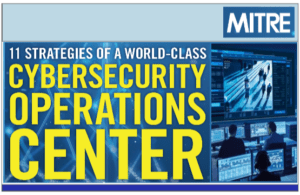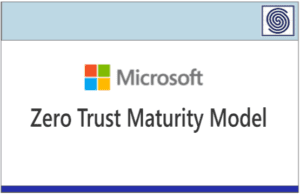Source: www.schneier.com – Author: Bruce Schneier
vas pup •
I am sorry if Bruce already pointed all bloggers attention to it in this blog.
Just found out and be glad to share with all respected bloggers:
Decoding the U.N. Cybercrime Treaty
https://www.eff.org/deeplinks/2023/04/decoding-uncybercrime-treaty
“Rather than focusing on core cybercrimes like network intrusion and computing system interference, the draft treaty’s emphasis on =>content-related crimes could likely result in overly broad and easily abused laws that stifle free expression and association rights of people around the world.
For example, the draft U.N. Cybercrime Treaty includes provisions that could make it a crime to humiliate a person and group or insult a religion using a computer. This potentially makes it a crime to send or post legitimate content protected under international law.
Governments routinely abuse cybercrime laws to !!! criminalize speech by claiming to combat disinformation, “religious, ethnic or sectarian hatred,” “terrorism,” “the distribution of false information,” and many other harms.
=>But in practice, these laws are used to stifle criticism, suppress protests and dissent, and clamp down on free expression and association. This is despite the right to free expression—including the right to insult and offend—being protected under the Universal Declaration of Human Rights (UDHR) and Article 19 of the International Covenant on Civil and Political Rights (ICCPR)—of which the U.N. Member States negotiating the new treaty are parties to.
Governments may only limit these rights in very narrow circumstances. But the draft U.N. Cybercrime Treaty ignores these permissible limitations, which may lead to the criminalization of legitimate uses of technology that promote access to information and freedom of speech.
=>The U.N. General Assembly has also made it clear that States should refrain from imposing restrictions on discussions about government policies and political debate, participation in election campaigns, peaceful demonstrations, expressing opinions and dissent, and being associated with particular religions or beliefs, including by persons belonging to minorities or vulnerable groups.
Checks and balances on government use of surveillance laws are essential to avoid abuses of power and human rights like freedom of expression and association. We saw how the COVID-19 pandemic incentivized authorities to institute
=>intrusive forms of surveillance without appropriate checks and balances, such as using surveillance technology to track individuals in public and monitoring private communications—
!!! all without legal authorization or oversight. And these laws disproportionately restrict the rights of those already marginalized and targeted in society, with personal data on religious beliefs, political affiliations, and other sensitive information collected in mass without guardrails against abuses.
!!! The circumstances upon which police are permitted to access personal data during criminal investigations should always be subject to robust human rights safeguards and !!! overseen by an impartial and independent oversight mechanism to ensure that individuals’ human rights are not at risk and to prevent police abuse of power.
On top of government attempts to keep human rights safeguards out of the draft treaty, negotiators have proposed a variety of broad, ! vague provisions that expand surveillance powers across borders as well as within each country. EFF is calling for the exclusion of provisions that compel governments to adopt domestic laws authorizing very intrusive surveillance powers.
!!! The draft treaty also oddly refers to allowing authorities to use “special investigative techniques” without ever defining what those are. The current language, indeed, could allow any type of surveillance technology—from malware to IMSI catchers, machine learning prediction, and other mass surveillance tools—as well as any tool or technique that may exist in the future. The use of new surveillance technologies must always be subject to public debate and !!! we must not give law enforcement a permanent blank check to spy on people with methods that haven’t even been invented yet.
!!!The “necessary information to enable” access to secured computers and data could be argued be to include assistance in breaking encryption or other security measures. It could also be interpreted to include government demands for vulnerability disclosures (to be made confidentially to government authorities) =>or even for disclosure of private keys or issuance of false digital certificates.
The measure doesn’t seem to go as far as explicitly requiring tech developers to create backdoors in their security systems, =>but it should precisely define the limits of technical assistance and make clear that it is not authorizing the creation of backdoors or the weakening of encryption or other security measures.”
AlanS •
Roy Saltman, election expert who warned of hanging chads, dies at 90
Saltman, R. (1988), Accuracy, Integrity, and Security in Computerized Vote-Tallying, Special Publication (NIST SP), National Institute of Standards and Technology, Gaithersburg, MD
Sidebar photo of Bruce Schneier by Joe MacInnis.
Original Post URL: https://www.schneier.com/blog/archives/2023/04/friday-squid-blogging-more-squid-camouflage-research.html
Category & Tags: Uncategorized,squid – Uncategorized,squid




















































